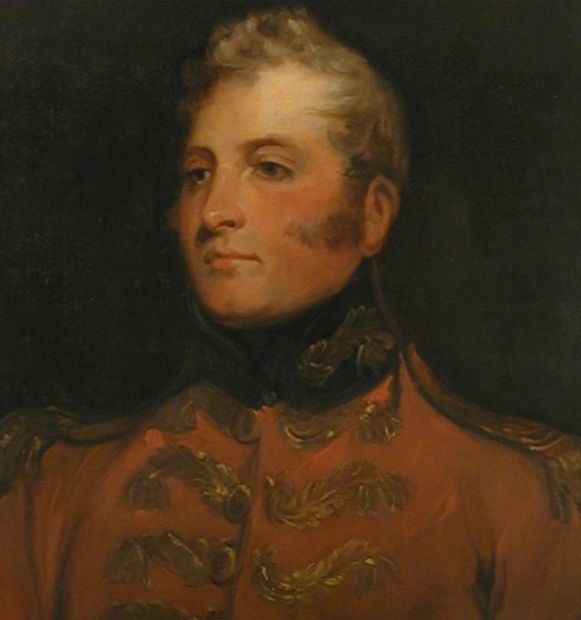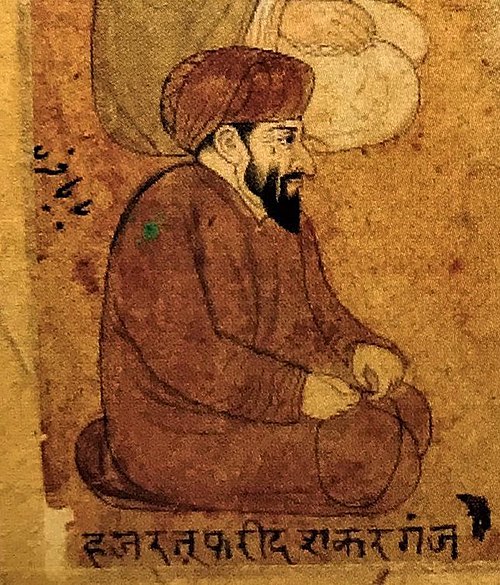FORD, MATTHEW WILLIAM (d. 1841), an Englishman who started his career in 1804 as an ensign in a West India regiment. He successively served with the 7th Foot, the 70th Foot, the 1st Royal Scots and the 22nd Light Dragoons. In 1823, he was appointed paymaster to the 16th Foot. While stationed at Karnal in 1837, he embezzled large sums of money and deserted the British troops. He came to Lahore towards the end of the year and joined the Sikh army as a battalion commander on Rs 800 per month, later commuted for jagir of three villages near Rawalpindi.
FATEH SINGH (d. 1875), son of Nidhan Singh Hathu, was a soldier in the Sikh army and was attached to his father`s contingent wherein he remained until 1827 when he was placed in the Ghorcharha Kalan regiment. In 1834, he accompanied Maharaja Ranjit Singh to Peshawar and, in 1840, he was sent, under Arjan Singh Ranghar Nanglia, to Mandi and Kullu where a rebellion had broken out. After the death of Raja Hira Singh in December 1844, Fateh Singh was ordered to Rajauri and Punchh to put down an insurrection there.
FOULKES, R. (d. 1841), an Englishman, who joined Maharaja Ranjit Sihgh`s cavalry in February 1836. He remained attached to General Ventura as aide-de-camp, and accompanied him on his expedition to Mandi in 1840. On file conclusion of the campaign, he was left in charge of the Sikh troops stationed at Mandi. However, his troops mutineed in March 1841, and assassinated him.
FATEH SINGH AHLUVALIA (d. 1836), son of Bhag Singh, and a grandnephew of Jassa Singh Ahluvalia, leader of the Ahluvalia misi and of the Dal Khalsa, who in 1758 proclaimed the sovereignty of the Sikhs in the Punjab. Fateh Singh succeeded to the Ahluvalia chiefship in 1801. He was the chosen companion of Maharaja Ranjit Singh, with whom he in 1802 exchanged turbans in a permanent bond of brotherhood. Fateh Singh took part in almost all the early campaigns of Ranjit Singh Kasur (1802-03), Malva (1806-08), Kangra (1809), Multan (1818), Kashmir (1819) and Mankera (1821). He fought in the battle of Haidru (1813) and held command in the Bhimbar, Rajauri and Bahawalpur expeditions.

FANE, SIR HENRY (1778-1840), commander-in-chief of the British Indian army, who visited the Punjab in 1837 on the occasion of the marriage of Kanvar Nau Nihal Singh, Maharaja Ranjit Singh`s grandson. Sir Henry Fane`s visit to Ranjit Singh was an event of considerable interest. He was highly impressed by the extraordinary discipline of the Maharaja`s troops and the splendour of his court. In his several meetings with the British commander-in-chief, Ranjit Singh questioned him on the strength and composition of the British army, on the extent of Russian influence in Persia, and on the ability of the Shah of Persia to give effective aid to the Russians.
FATEH SINGH KALIANVALA (d. 1807), military commander and jagirdar under Maharaja Ranjit Singh, was the son of Jassa Singh and grandson of Jaimal Singh. Jaimal Singh was a Sandhu Jatt and the first in the line to embrace the Sikh faith. He was a resident of Kala village in Amritsar district. In the troops of the Sukkarchakkia chiefs, Charhat Singh and Mahan Singh, he had fought against the Chatthas inhabiting the northern part of Gujranwala district. In one of the skirmishes with the Chatthas he lost both of his sons, Jai Singh and Jassa Singh. Fateh Singh entered the service of Maharaja Ranjit Singh in 1797, and rapidly rose in the favour of his master.
FATEH SINGH CHHACHHI (d. 1814), son of Tahal Singh Chhachhi, a Kohli Khatri belonging to Gujranwala district in the Punjab, served under Maharaja Ranjit Singh. He fought in the campaigns launched by the Maharaja for the conquest of Pind Dadan Khan, Pindi Gheb and Jhang and obtained considerable addition to his estates at Bharatpur, Sahival and Kunjah. He died fighting during the expedition against Kashmir in 1814.




